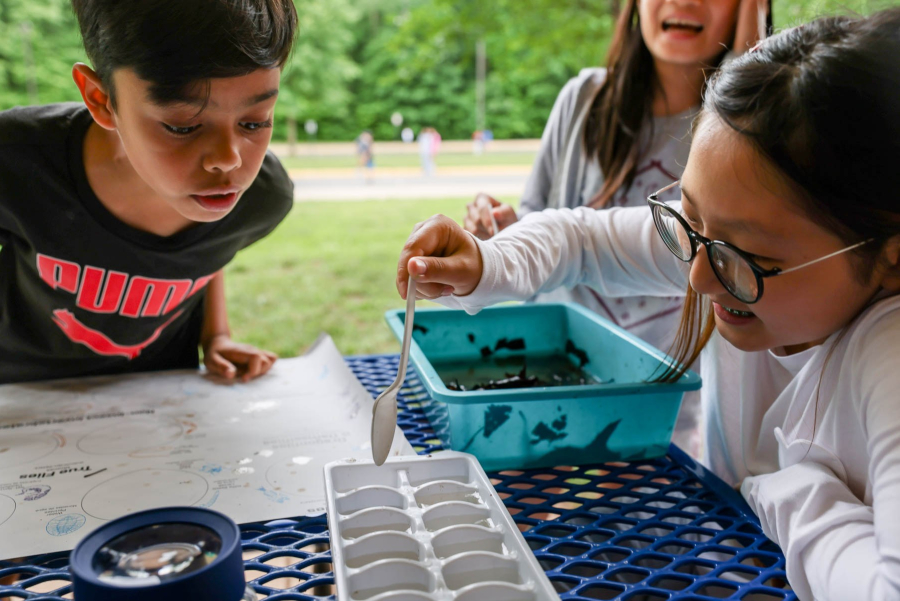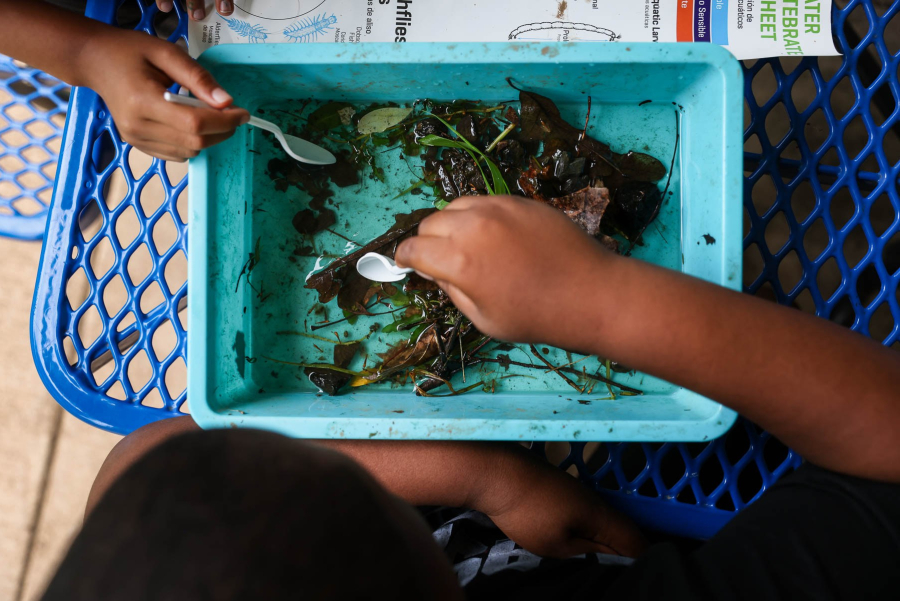NOAA Chesapeake Bay Office awards its 2,000th certificate to trained environmental educators
Online course trains educators to develop Meaningful Watershed Education Experiences

More than 2,000 educators in the Chesapeake Bay watershed are now certified to provide students with Meaningful Watershed Educational Experiences!
Meaningful Watershed Educational Experiences—“MWEEs”—are a process used by educators that helps their students learn about local environmental issues and inspires them to take action. As part of a MWEE, actively engaged students learn both in the classroom and outdoors. They identify an environmental issue, participate in outdoor field experiences, develop conclusions about their investigations and implement an environmental action project.
Guiding students through a MWEE is more nuanced than simply assigning reading in a textbook and taking a class to see their local stream. To give educators the knowledge they need to lead a MWEE, the National Ocean Atmospheric Administration (NOAA) Chesapeake Bay Office—one of the partners in the Chesapeake Bay Program—developed the “MWEE 101” online course. This training supports teachers who want to guide students in investigations into local issues that lead to informed action and civic engagement. We’re excited to report that the NOAA Chesapeake Bay Office recently awarded a certificate to the 2,000th educator to complete the online course!
School districts around the Chesapeake Bay watershed know that training educators to use MWEEs is important. They see that educators who have been trained to lead MWEEs have the knowledge and confidence to create effective and inspiring experiences for their students.

“We use the MWEE 101 course to support our teachers in thoroughly understanding the elements of a MWEE as a prerequisite to our in-person workshops. This valuable knowledge enables our participants to make critical connections between the theory of the MWEE 101 course and the practical implementation of an in-person MWEE lesson,” said Lauren Counningham, curriculum services supervisor at the Westmoreland Intermediate Unit in Pennsylvania. “As we work to support teachers in Pennsylvania to shift their instruction to the new Pennsylvania STEELS standards, the MWEE 101 course is a perfect addition to these efforts."
Pennsylvania's Science, Technology & Engineering, Environmental Literacy & Sustainability (STEELS) Standards are the academic standards adopted by Pennsylvania in 2022. The standards evolve teaching about these subjects away from memorization of facts and toward sustained investigation to support deeper understanding. The process of guiding students through MWEEs echoes the STEELS standards.
The MWEE 101 course gets thumbs-ups from teachers, too. They enjoy the content and the format of the online course.
"I have found tremendous value in assigning or offering MWEE 101 to teachers. The course prepares teachers with an in-depth understanding before attending in-person professional learning experiences simulating the elements of a MWEE. Teachers enjoy the self-paced nature of the course and report back that reflections aided their ability to plan within their curricula," said April Harper, programs and operations manager at Friends of the Rappahannock in Virginia.
It’s inspiring to know that there are so many educators who, thanks to the MWEE 101 course, are prepared to develop the next generation of Chesapeake Bay stewards. To learn more about developing MWEEs and advancing environmental education at your school, visit BayBackpack.com

Comments
There are no comments.
Thank you!
Your comment has been received. Before it can be published, the comment will be reviewed by our team to ensure it adheres with our rules of engagement.
Back to recent stories